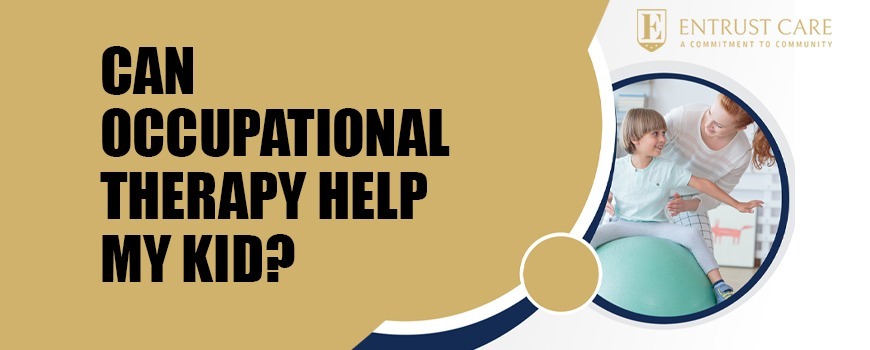Childhood is surely the most important stage in terms of physical and emotional development. It is during this stage that we develop our body as well as our mind. As a parent, you have a big responsibility on your shoulders when it comes to looking after your kid. You have to keep a close eye on how well your kids are going through the growth phase.
Some kids may find it difficult to develop skills like others of their age and it is something that often worries parents. If you find your kids facing such difficulties, then it is better to seek help from a good pediatrician. You will need to gather all the information relating to the condition your child is facing and come up with a proper solution by seeking the help of the occupational therapist.
When you are concerned about your child’s overall development, considering occupational therapy can be beneficial for your child as well as you. The aim of occupational therapy is to monitor your kid’s overall growth, short-term interventions, and conduct periodic assessments.
Occupational therapy for kids mainly involves helping them improve their day-to-day activities by including their parents, caregivers, and teachers. This will allow them to collectively participate in helping children to improve their performance and find their place in life.

How Does Occupational Therapy Help Kids?
An occupational therapist works with children to improve a variety of skill sets that they might find difficult to accomplish. OT helps them to perform tasks that are crucial to function, interact, and learn.
There are a lot of kids who struggle with conditions such as autism, hearing or visual impairment, or SDP (sensory processing disorder). Occupational therapy is often used as an aid to help these children from their misery.
You don’t necessarily have to be diagnosed with the above-mentioned symptoms to reap the benefits of occupational therapy. Even kids who find it hard to perform daily routines due to various other challenges can also benefit from occupational therapy. The following signs will help you figure out if your child requires occupational therapy:
Developmental Delay
Developmental delay refers to difficulty in developing the basic skill set that most kids develop during a certain age or a particular period.
That being said it’s not about having a small delay in the overall growth. In fact, you will be able to see a noticeable difference in their growth process such as when a baby is a year old and still not able to start crawling, or being two years old and not able to walk steadily.
If you notice these delays it can be an indication that your child is a late bloomer and needs help. Occupational therapy can be a great way to help your child to help improve their growth.
Visual Processing
When kids reach a certain age, processing visual information should be an easy task for them. But in some cases, children struggle with interpreting what they see and understanding it. In some cases kids find it difficult to;
- Copy letters and shapes
- Struggle with understanding the concept of left and right
- Not able to understand the spacing and sizing of letters
- Unable to copy from paper or blackboard
With the help of various techniques in occupational therapy, children who struggle with visual processing can be assisted. Occupational therapy can help them develop a better understanding of what they see.
Fine and Gross Motor Skills
Fine and gross motor skills are some of the basic skill sets required for a human to function properly. Fine motor skills refer to the use of small muscles of our hands to do basic tasks in our day-to-day life such as holding pencils, scissors, tying a shoelace, brushing teeth, and such.
Gross motor skills are those which require whole body movement and it involves large muscles in our body to do various activities in our daily life such as running, sitting, jumping, crawling, climbing stairs, and such.
Both fine and gross motor skills are essential for the overall growth of an individual. If your kid finds these activities difficult, it is better to consult an occupational therapist to develop both fine and gross motor skills.
Struggle with Learning
We have seen a lot of parents blaming their kids for not doing well in school and academics. They often ignore the possibility that their kid might find it very difficult to learn. Kids who suffer from such a condition often struggle with;
- Focusing at school
- Unable to follow instructions
- Poor impulse control
- Low energy or hyperactive
- They find it difficult to handle schoolwork.
Don’t let your kid’s bright future into flames due to these learning disabilities and stop blaming them for it. What you need to do is to try to help them overcome their disabilities with the help of occupational therapy.
Lacks Social Interaction Skills
As an adult, you know how important it is to have social interaction skills both in our personal and professional life. If your child struggles with developing relationships and engaging in social interaction you should consider consulting an occupational therapist to help your kid to improve their ability to develop social interaction skills.
Conclusion
As a parent, you should always do everything for the best interest of your child. And if you find your kids facing difficulties as we mentioned earlier you should always be there for them with support and help them overcome their disabilities.
Most of the skill development-related issues that kids face during childhood can be effectively treated with the help of an experienced occupational therapist. Timely consulting, evaluating, and intervening with the right solution with the help of occupational therapy can be a life-changing event in your kid’s life.
If you wish to know more about occupational therapy for kids don’t hesitate to get in touch with Entrust Care! We provide the best occupational therapy along with several other services. Give us a call today to learn more!
